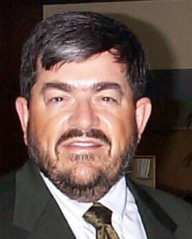DECEMBER 8, 2015 ROTARY IN REVIEW:
Dr. Ann Frisch
Human Rights Day. Rotary International has played an important role over the years in the development of world peace initiatives. In particular, the foundation for the "Universal Declaration of Human Rights" can be traced to RI work that Prof. Ann Frisch of Nonviolent Peaceforce came to describe to Club 10.
Club 10 Business Report
President Carla Hauge brought the meeting to order at 12:15 p.m. on a cloudy fall day in downtown Saint Paul. Michael-jon Pease led the assembled Rotarians in singing accompanied by Bob Jones on the piano. Al Zdrazil provided today's invocation. John Chandler facilitated the introduction of visiting Rotarians and guests. Today's Greeters were Annette Kuyper and Chad Roberts.
President Carla reported that the member survey has received about a 50% response rate. She found this to be a satisfactory response and typical for this type of survey. Linda Mulhern introduced Youth Exchange participant Olivia Persson. She reported enthusiastically on her trip to Ecuador in 2014 and 2015 with many, many great slides and thanked Club 10 for making it happen.
Michael-jon wrapped up the Holiday Party. The early numbers indicate that this was the biggest fund raising year ever with close to $14,000. The Commodore venue helped attract a strong turnout. Valet parking was a good add since the restaurant is so busy. Today, Club 10 members could still bid on Wild tickets at the meeting with a package of four tickets including parking with three pucks valued at $789 available. Michael-jon conducted a brief live auction and sold the goods for $550. Jay Pfaender provided promotion for the December 15th meeting and speaker. John Chandler collected Happy Dollars.
Dr. Jim Hart introduced today's speaker, Prof. Ann Frisch of Nonviolent Peaceforce (afrisch@nonviolentpeacforce.org). Prof. Frisch stated that she was here to celebrate the great work of Rotarians in making world peace. This is the road less traveled. Rotary's founder, Paul Harris, emphasized: "TOLERATION!" Don Carter built on this by noting: "Service was not part of the original Rotary mission." At a conference in 1922 at Edinburgh, Rotary International was formed. At the 1940 RI Havana International Conference, Rotary International issued a seminal statement featuring the phrase: "...respect for human rights." In 1948, the United Nations adopted the Universal Declaration of Human Rights ("UDHR"). Entitlements and rights foundational to the UDHR include: "Life, liberty and security of person;" "remedies;" "work, equal pay, just pay, trade associations;" "adequate standard of living; family, food, clothing medical care, security;" "participate in the cultural life of the community."
Prof. Frisch then asked for ten audience members to participate by volunteering to answer three questions:
- What right is especially important to me?
- What right would I cheerfully give up?
- What rights would you add to the Universal Declaration of Human Rights?
A spirited discussion ensued including the comment that people are born with these rights.
Prof. Frisch is attending a meeting next month at which she intends to propose a "Rotarian Action Group for Peace." She will ask that all Rotarians read the UDHR every year. Prof. Frisch then pondered the missed opportunities for Rotary in the past if it had only been more aggressive in the pursuit of these rights for all. Might women have been admitted to Rotary as members sooner? Could Rotarians have been peacemakers in the American South? Peacemakers in other world conflicts?
President Carla thanked Prof. Frisch for her presentation and noted that a donation would be made in her name to the Saint Paul Public Library's "Reading Together" program. She also presented her with a Rotary Coin and then led those assembled in a recitation of the Four-Way Test inscribed on it ("Is it the Truth? Is it Fair to all concerned? Will it build Goodwill and Better Friendships? Will it be Beneficial to all concerned?"). President Carla then rang the bell to close the meeting at 1:08 p.m.
Chuck Standfuss, Scribe


